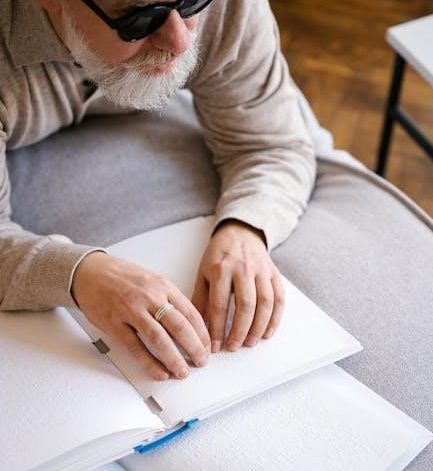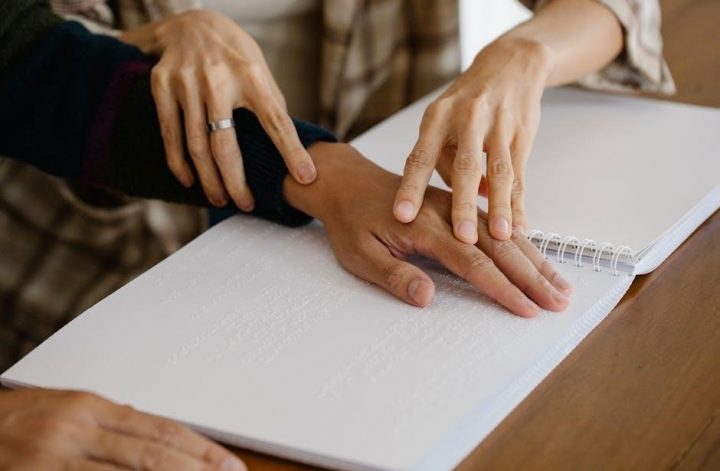Internalized homophobia refers to the emotional and psychological distress experienced by LGBTQ individuals who internalize societal homophobic norms‚ leading to feelings of shame‚ self-hatred‚ and self-doubt.
1.1 Defining Internalized Homophobia and Its Impact
Internalized homophobia occurs when LGBTQ individuals unconsciously adopt societal homophobic attitudes‚ leading to self-hatred‚ shame‚ and self-doubt. It develops from exposure to heterosexist norms‚ often starting in childhood. This internalization can manifest as negative self-perceptions‚ self-rejection‚ or even hatred toward one’s own sexuality. The impact is profound‚ affecting mental health‚ self-esteem‚ and relationships. It often results in anxiety‚ depression‚ or difficulty in forming authentic connections. Over time‚ internalized homophobia can prevent individuals from embracing their true selves‚ fostering a cycle of self-loathing and alienation. Addressing this deeply rooted issue is crucial for promoting self-acceptance and emotional well-being in the LGBTQ community.
1.2 Understanding the Role of Shame and Self-Hatred
Shame and self-hatred are central to internalized homophobia‚ often stemming from societal rejection and stigma. These emotions manifest as negative self-perceptions‚ self-blame‚ and a deep-seated belief that one’s sexuality is flawed. Shame can lead to self-destructive behaviors‚ such as substance abuse or self-sabotage‚ while self-hatred fosters a critical inner voice. Both emotions alienate individuals from their authentic selves and hinder healthy relationships. Addressing these feelings requires self-compassion and challenging harmful internalized beliefs. Recognizing the societal roots of shame and self-hatred is the first step toward healing and reclaiming self-worth. This process is vital for overcoming internalized homophobia and achieving emotional freedom.

The Societal and Cultural Roots of Homophobia
Societal and cultural roots of homophobia are shaped by heterosexism and homophobic norms‚ reinforced by institutions like family‚ religion‚ and media‚ leading to internalized beliefs and self-shame.
2.1 How Heterosexism and Homophobic Norms Shape Self-Perception
Heterosexism and homophobic norms perpetuate the belief that heterosexuality is the only acceptable orientation‚ fostering a toxic environment for LGBTQ individuals. These societal standards often lead to feelings of inadequacy‚ as individuals internalize the message that their identity is flawed or unnatural. Family‚ religion‚ and media further reinforce these norms‚ creating a cycle of self-doubt and shame. For many‚ this results in a distorted self-perception‚ where their authentic selves are viewed as unworthy or unacceptable. Such internalized beliefs can deeply impact mental health and self-esteem‚ making it challenging to embrace one’s true identity without judgment or fear of rejection.
2.2 The Influence of Family‚ Religion‚ and Media on Internalized Homophobia
Family‚ religion‚ and media significantly contribute to internalized homophobia by reinforcing heteronormative values and condemning non-conforming identities. Growing up in unsupportive families can lead to feelings of rejection and shame‚ as individuals internalize negative messages about their sexuality. Religious teachings often perpetuate homophobic beliefs‚ causing internal conflict and self-doubt. Media representation‚ or the lack thereof‚ further marginalizes LGBTQ individuals‚ portraying them in stereotypical or negative roles. These influences collectively shape self-perception‚ fostering a sense of inadequacy and self-hatred. The absence of positive role models and affirming narratives exacerbates these feelings‚ making it difficult for individuals to embrace their authentic selves without guilt or fear.
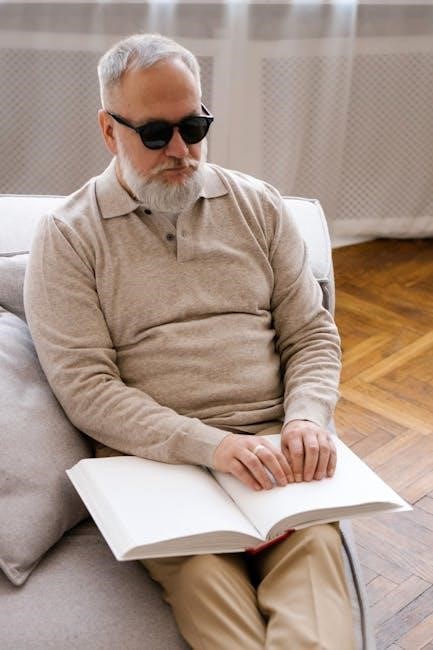
Recognizing the Signs of Internalized Homophobia
Recognizing internalized homophobia involves identifying feelings of self-hatred‚ shame‚ and self-doubt stemming from societal homophobic messages. It manifests as negative self-perception and discomfort with one’s true identity.
3.1 Identifying Self-Hatred and Shame Related to Sexuality
Internalized homophobia often manifests as self-hatred and shame tied to one’s sexuality. These feelings stem from societal homophobic norms‚ leading individuals to view their sexual identity as flawed or unacceptable. Self-hatred may appear as self-criticism‚ avoidance of LGBTQ+ communities‚ or even denial of one’s true self. Shame can result in feelings of worthlessness‚ guilt‚ or anxiety about being discovered or judged. Recognizing these patterns is crucial‚ as they can severely impact mental health‚ contributing to depression‚ anxiety‚ or low self-esteem. Acknowledging these emotions is the first step toward healing and embracing authenticity‚ allowing individuals to challenge and overcome internalized homophobia.
3.2 Understanding the Link Between Homophobia and Mental Health
Internalized homophobia significantly impacts mental health‚ often leading to depression‚ anxiety‚ and low self-esteem. The societal rejection and stigma associated with homophobic norms create a toxic environment‚ fostering feelings of worthlessness and self-doubt. LGBTQ individuals may experience heightened stress due to fear of judgment or rejection‚ further exacerbating mental health struggles. Chronic exposure to homophobia can result in self-destructive behaviors‚ such as substance abuse‚ as a coping mechanism. Addressing these issues requires a supportive environment and professional help to dismantle internalized beliefs and promote healing. Recognizing this link is essential for providing effective care and fostering resilience within the LGBTQ community.
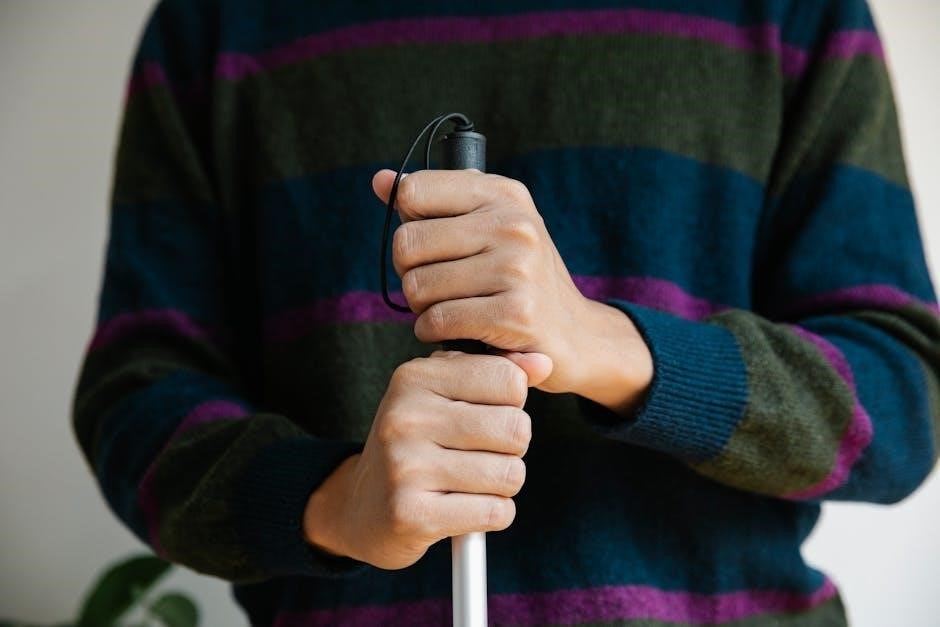
Strategies for Overcoming Internalized Homophobia
Strategies include self-compassion‚ challenging negative beliefs‚ and redefining identity. Seeking support and engaging in affirming practices help individuals reclaim their authenticity and foster emotional resilience.
4.1 The Power of Self-Compassion and Self-Acceptance
Self-compassion and self-acceptance are powerful tools for healing from internalized homophobia. By practicing kindness toward oneself‚ individuals can counteract the harmful effects of societal homophobic messages.
Self-acceptance involves embracing one’s true identity‚ fostering a sense of worthiness‚ and rejecting self-criticism. This process helps individuals move beyond shame and cultivate a positive‚ authentic sense of self‚ promoting emotional well-being.
4.2 Challenging Negative Beliefs and Reframing Thought Patterns
Challenging negative beliefs and reframing thought patterns is crucial in overcoming internalized homophobia. Many individuals internalize homophobic messages‚ leading to harmful self-perceptions. By identifying and questioning these beliefs‚ individuals can replace them with positive‚ affirming thoughts. Reframing negative self-talk and challenging societal norms helps diminish self-hatred and fosters self-acceptance. This process often involves recognizing the external origins of these beliefs and reclaiming personal narratives of worth and dignity. Through consistent practice‚ individuals can develop more compassionate and empowering perspectives‚ reducing the impact of internalized homophobia and promoting mental well-being. This transformation is a key step toward healing and embracing authenticity.
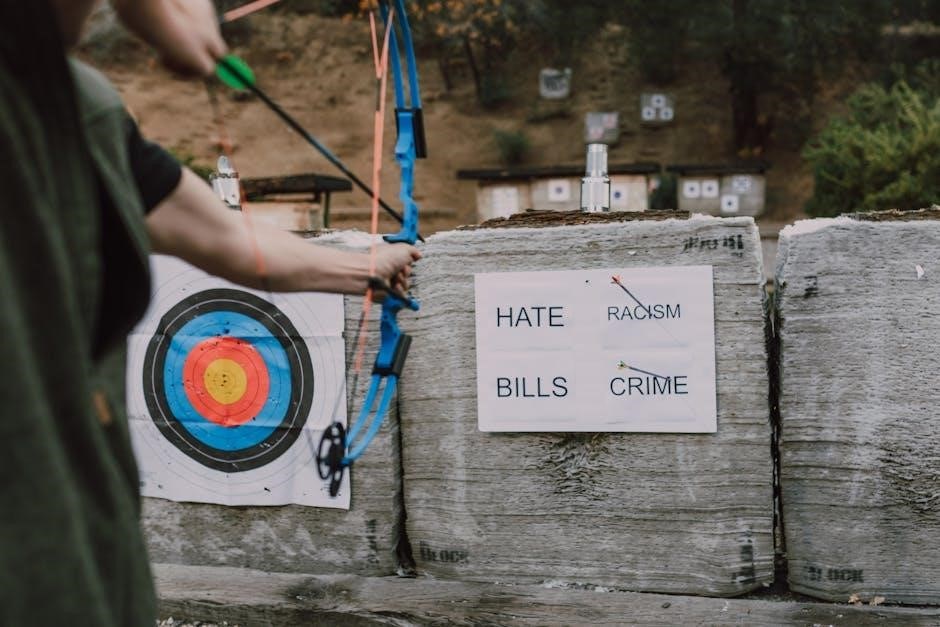
The Role of Support Systems in Healing
Support systems provide safe spaces for understanding‚ acceptance‚ and empowerment‚ helping individuals build self-worth and overcome internalized homophobia with the help of allies and community.
5.1 Building a Supportive Community and Finding Safe Spaces
Building a supportive community and finding safe spaces are crucial for healing from internalized homophobia. These environments provide understanding‚ acceptance‚ and empowerment‚ allowing individuals to express their true selves without fear of judgment or rejection. Safe spaces‚ whether online or in-person‚ foster connection and belonging‚ reducing feelings of isolation. A supportive community can include friends‚ family‚ or LGBTQ+ groups that promote positivity and self-acceptance. Allies also play a vital role by advocating for inclusivity and challenging homophobic norms. Surrounding oneself with loving and affirming individuals helps rebuild self-worth and counteracts the damaging effects of internalized homophobia‚ promoting personal growth and resilience.
5.2 The Importance of Allies in Combating Homophobia
Allies play a vital role in combating homophobia by creating inclusive environments and challenging discriminatory behaviors. They amplify marginalized voices‚ fostering understanding and acceptance. Allies actively listen‚ educate themselves about LGBTQ+ issues‚ and advocate for equality. Their support helps individuals heal from internalized homophobia by validating their experiences and promoting self-acceptance. Allies also counteract homophobic norms by speaking out against prejudice and encouraging others to do the same. Their involvement strengthens communities‚ fostering a culture of empathy and inclusivity. Through solidarity and advocacy‚ allies contribute significantly to the journey of overcoming shame and self-hatred‚ empowering LGBTQ+ individuals to embrace their authenticity fully.
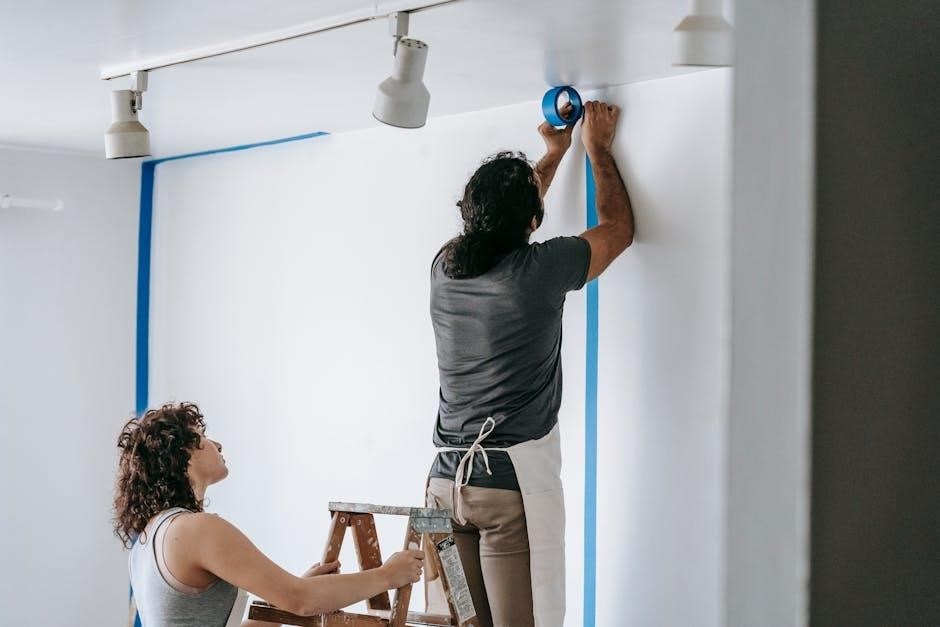
Professional Help and Therapy
Professional help and therapy provide safe spaces for individuals to address internalized homophobia. Trained therapists offer strategies to reframe negative beliefs and foster self-acceptance. LGBTQ-affirmative care is crucial for healing and mental well-being.
6;1 How Therapists Can Help Address Internalized Homophobia
Therapists play a vital role in helping individuals address internalized homophobia by creating a safe‚ non-judgmental space for self-reflection. They use evidence-based techniques‚ such as cognitive-behavioral therapy‚ to challenge harmful beliefs and reframe negative thought patterns. Trained professionals can help clients explore the root causes of their shame‚ often linked to societal norms or past experiences. By fostering self-compassion and self-awareness‚ therapists empower individuals to embrace their authentic selves. Additionally‚ they provide tools to cope with discrimination and build resilience. Working with an LGBTQ-affirmative therapist ensures culturally sensitive care‚ addressing the unique challenges of internalized homophobia and promoting long-term mental well-being.
6.2 The Benefits of LGBTQ-Affirmative Mental Health Care
LGBTQ-affirmative mental health care offers tailored support‚ addressing the unique challenges faced by LGBTQ individuals. Trained therapists understand the impact of societal stigma and internalized homophobia‚ creating a safe space for healing. This approach fosters self-acceptance and resilience‚ helping individuals break free from shame. Affirmative care also reduces feelings of isolation‚ promoting emotional well-being. By acknowledging the intersectionality of identity‚ therapists provide culturally competent interventions. Evidence-based practices empower clients to embrace their authenticity‚ leading to improved mental health outcomes. Such specialized care is crucial for overcoming internalized homophobia‚ offering a pathway to self-love and a fulfilling life.

Embracing Authenticity and Self-Acceptance
Embracing authenticity and self-acceptance is a powerful step in healing from internalized homophobia. It involves letting go of shame and societal expectations‚ allowing individuals to celebrate their true selves.
7.1 Letting Go of Shame and Embracing Your True Self
Letting go of shame is a crucial step in overcoming internalized homophobia. Shame often stems from societal norms and expectations‚ leading to self-hatred and emotional distress. Embracing your true self requires acknowledging and challenging these internalized beliefs. It involves recognizing that your identity is valid and deserving of love and respect. By releasing the burden of shame‚ individuals can begin to heal and develop a positive self-image. This process often involves self-compassion‚ self-awareness‚ and support from affirming communities. Embracing authenticity allows LGBTQ individuals to live freely‚ without the weight of societal judgment‚ fostering mental well-being and emotional freedom.
7.2 Celebrating Identity and Promoting Self-Love
Celebrating your identity and fostering self-love are powerful tools for overcoming internalized homophobia. Embracing your authentic self involves recognizing the value and uniqueness of your experiences. Self-love encourages individuals to challenge negative self-perceptions and replace them with affirming beliefs. Practices such as mindfulness‚ journaling‚ and connecting with supportive communities can help cultivate self-acceptance. Celebrating LGBTQ identity through art‚ culture‚ and shared experiences fosters pride and resilience. By promoting self-love‚ individuals can break free from the cycle of shame and build a positive‚ empowered sense of self. This journey not only heals personal wounds but also contributes to a broader culture of acceptance and inclusivity.

